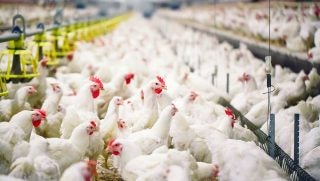This week many people had reported to their state’s department of agriculture that they received unsolicited packages of seeds that appear to have originated from China. As the story developed, more than 27 state’s agricultural departments published some type of message urging residents not to plant the unsolicited seeds. Over the weekend as individual departments were putting out messages of warning, there was even more work going on behind the scenes. Local, state, and federal governments were working together to sort out this issue.
On Tuesday of this week, U.S. Department of Agriculture’s Animal and Plant Health Inspection Service released a statement with further explanation. They once again warned residents not to plant the seeds, but to report them. They also believed that these seeds were part of a scam.
“At this time, we don’t have any evidence indicating this is something other than a ‘brushing scam,’ where people receive unsolicited items from a seller who then posts false customer reviews to boost sales,” the agency said. “USDA is currently collecting seed packages from recipients and will test their contents and determine if they contain anything that could be of concern to U.S. agriculture or the environment.”
After the warning messages were put out, it was time to figure out what kind of seeds were included in the packages. According to Osama El-Lissy, with the Plant Protection program of USDA’s Animal and Plant Health Inspection Service, the unsolicited seed packets have contained several plant species.
“We have identified 14 different species of seeds including mustard, cabbage, morning glory, and some of the herbs — like mint, sage, rosemary, lavender — and then other seeds like hibiscus and roses. This is just a subset of the samples we have collected so far,” he said.
Once again, the USDA urges anyone who receives an unsolicited package of seeds to immediately contact their state plant regulatory official or APHIS State plant health director. Please hold onto the seeds and packaging, including the mailing label, until someone from your state department of agriculture or APHIS contacts you with further instructions. Because of the threat of invasive species and other concerns, do not plant seeds from unknown origins.
“Invasive species wreak havoc on the environment, displace or destroy native plants and insects and severely damage crops. Taking steps to prevent their introduction is the most effective method of reducing both the risk of invasive species infestations and the cost to control and mitigate those infestations,” Virginia’s state ag department said over the weekend.
The USDA’s Animal and Plant Health Inspection Service is working closely with the Department of Homeland Security’s Customs and Border Protection, other federal agencies, and State departments of agriculture to investigate.


